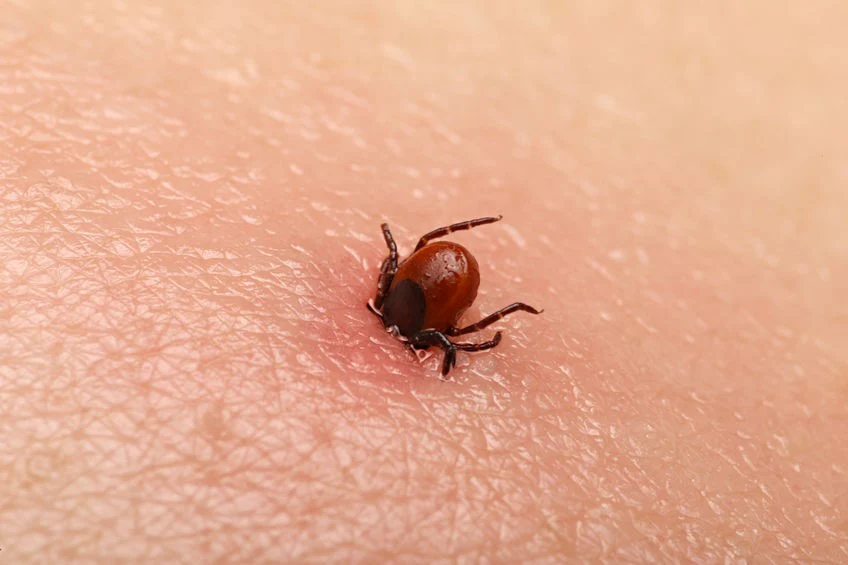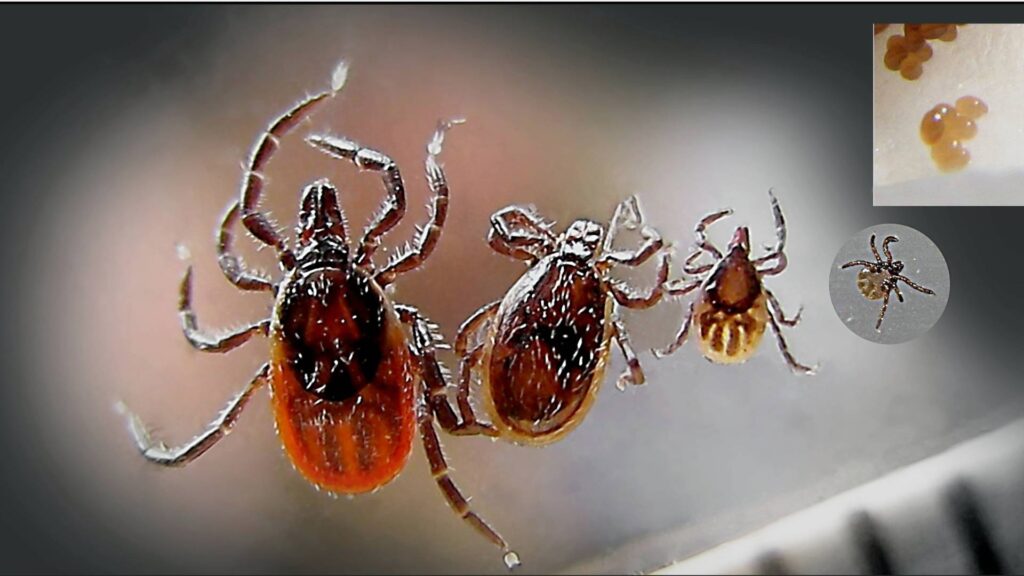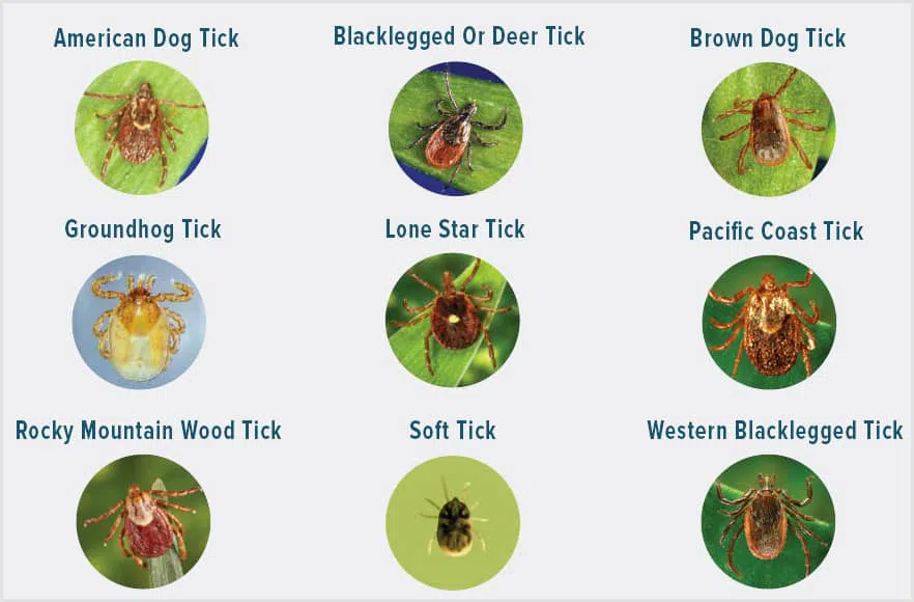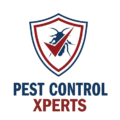Tick Treatments in Florida
Exterminator Services for Spring Hill, New Port Richey, Port Richey, Dade City, Brooksville
Ticks remain a concern for many residents in Florida because of the warm climate and steady moisture that help these pests thrive. In places like Spring Hill, New Port Richey, Port Richey, Dade City, and Brooksville, ticks can attach to pets or people while outdoors, then return inside to hide. These tiny creatures feed on blood and can sometimes pass illnesses to humans or animals, so effective removal is critical. This page explains why ticks flourish in Florida, how to detect an infestation, and how a professional tick exterminator in Florida can provide thorough tick treatments. You will also learn about steps you can take to reduce tick problems in the future.
Why Ticks Multiply in Florida
- Warm Temperatures
Florida rarely experiences the freezing conditions that would halt tick activity in colder places. Ticks take advantage of this weather to breed frequently, staying active in most months. - High Humidity
Ticks need moisture to stay hydrated, and Florida’s humidity meets this need. Damp areas in yards or gardens can shelter ticks. - Plenty of Animal Hosts
From wild creatures like raccoons or possums to cats and dogs roaming outside, ticks have many options for feeding. After attaching to a host, ticks may drop off indoors or in a yard, spreading further. - Regular Movement of People
Florida’s tourism and shipping routines allow ticks to travel on clothing or delivered goods. They settle if conditions support feeding and breeding.

Signs You May Have Ticks
- Pet Scratching or Itching
Dogs or cats with ticks might bite or scratch persistently, especially around the ears, neck, or belly. Some pets grow anxious or develop rashes if multiple ticks attach. - Bites on Humans
Tick bites often appear red and itchy, sometimes around ankles or behind knees. Ticks can stay attached for hours or days until fully engorged. - Visible Ticks
In heavy infestations, ticks can be spotted crawling on floors, pet bedding, or furniture. Unlike fleas, ticks do not jump high, but they can climb onto surfaces or people. - Pet Health Changes
Multiple tick bites might lead to lethargy or anemia in smaller animals. Some tick species carry bacteria that can infect pets or humans.
Why Ticks Are Problematic
Ticks can carry pathogens that cause illnesses in animals or people. Their bites also result in itching or potential infections if bitten areas are scratched. Constant biting makes pets restless, while humans may worry about the possibility of disease. If not addressed, ticks expand their presence, raising the risk of more bites. A tick infestation can also damage reputations for businesses like kennels or rentals if patrons encounter these pests on site.
Why a Tick Exterminator is Best
Treating ticks on your own might eliminate some adults but often misses hidden eggs or nymphs in carpet fibers, yard corners, or small cracks. A licensed tick exterminator in Florida understands how ticks progress through multiple stages, targeting each one. By using insect growth regulators, residual treatments, and occupant steps like washing pet bedding or mowing the lawn, experts stop the tick life cycle. This thorough approach reduces the likelihood of another wave of ticks hatching days or weeks later.

Our Tick Treatments in Florida
- Inspection and Planning
We inspect your property indoors and out. Indoors, we check rugs, furniture, and pet resting areas. Outdoors, we look for shaded or damp sections where ticks hide. Once we identify focal points, we shape a plan that addresses every stage of the tick life cycle. - Targeted Treatment Methods
After vacuuming accessible ticks or debris, we apply products that kill adult ticks and disrupt eggs or larvae. This can include insect growth regulators and residual sprays in carpets, baseboards, or yard edges. We concentrate on places pets linger, such as corners of rooms or dog runs in yards. - Safety Measures
We may ask occupants or pets to keep off treated areas until solutions dry or settle. Where heavier measures are needed, such as more intense sprays, we explain how to minimize exposure. Our goal is to remove ticks and still maintain a safe space. - Follow Up
Tick eggs can hatch after initial treatments, releasing new ticks. A return visit or occupant vigilance helps confirm these ticks also meet lethal conditions. We check any ongoing issues, refreshing treatments if signs reemerge.
Ticks in Spring Hill
Spring Hill’s residential zones and yards with overgrown shrubs or damp soil can become hotbeds for ticks. Dogs or cats might bring ticks indoors if the lawn is not maintained or if stray wildlife frequently crosses the property. We identify shaded yard corners where ticks gather, then apply product solutions. Indoors, we treat carpets or rugs with insect growth regulators. Occupant tips include grooming pets regularly and storing pet bedding in wash friendly, easy to clean areas.
New Port Richey, Port Richey, Dade City, Brooksville
These nearby communities each face Florida’s mild weather, letting ticks survive much of the year. Properties near parks or waterside attractions might see ticks migrating in from wildlife or local stray animals. Our tick exterminator approach blends indoor and outdoor searches, placing residual products in corners or along yard perimeters. After treating the infestation, occupant advice might include trimming yard foliage, vacuuming floors weekly, and running pet bedding in hot water cycles to eliminate hidden eggs

Steps to Help Avoid Ticks
- Maintain Your Yard
Keep grass trimmed and remove leaf piles. Ticks favor moist, dark zones in tall grass or hidden debris. - Inspect Pets Often
Use a flea and tick comb on dogs or cats, focusing on the head, neck, or between toes. A vet might suggest monthly tick preventives. - Wash Pet Bedding
Hot water kills ticks or larvae, especially if done weekly. Dry on a high heat setting for extra effect. - Vacuum Floors and Furniture
Flea eggs or tiny ticks can hide in rugs and cushions. Regular vacuuming removes them, and discard the contents in a sealed trash bag outside. - Limit Wildlife
Remove pet food bowls from yards at night, seal trash bins, and consider fencing if raccoons or opossums roam. Wildlife crossing lawns may drop ticks as they pass. - Post Travel Inspections
After hiking or returning from heavily wooded or grassy places, check clothing and shoes for ticks. Pets that go on walks should also be examined.
Contact Us for Tick Free Living
Seeing ticks on your dog, noticing bites on ankles, or spotting them on the carpet is a sign to act quickly. Contact us to learn more or schedule your service. Our tick treatments in Florida begin with an in depth look at your property, applying professional products inside and out to halt ticks at every life stage. Residents in Spring Hill, New Port Richey, Port Richey, Dade City, and Brooksville can rely on a plan that combines occupant cooperation like frequent pet checks, vacuuming, and yard upkeep with strategic use of insect growth regulators or sprays. Together, these actions break the tick cycle, helping everyone enjoy a comfortable, bite free environment.
Ensuring Ticks Do Not Return
Florida’s climate allows ticks to stay active for longer periods, but with consistent cleaning, proper pet grooming, and a little yard care, you deprive them of the conditions they need. When an infestation appears, an expert exterminator addresses the entire property, from carpets to yard corners, so adult ticks and hidden eggs are removed. Once you follow occupant tips like removing leaf litter or sealing cracks near entrances, ticks find fewer places to develop. With ongoing mindfulness and timely professional support, residents in Spring Hill, New Port Richey, Port Richey, Dade City, and Brooksville can protect their properties from these unwanted, blood feeding pests.
